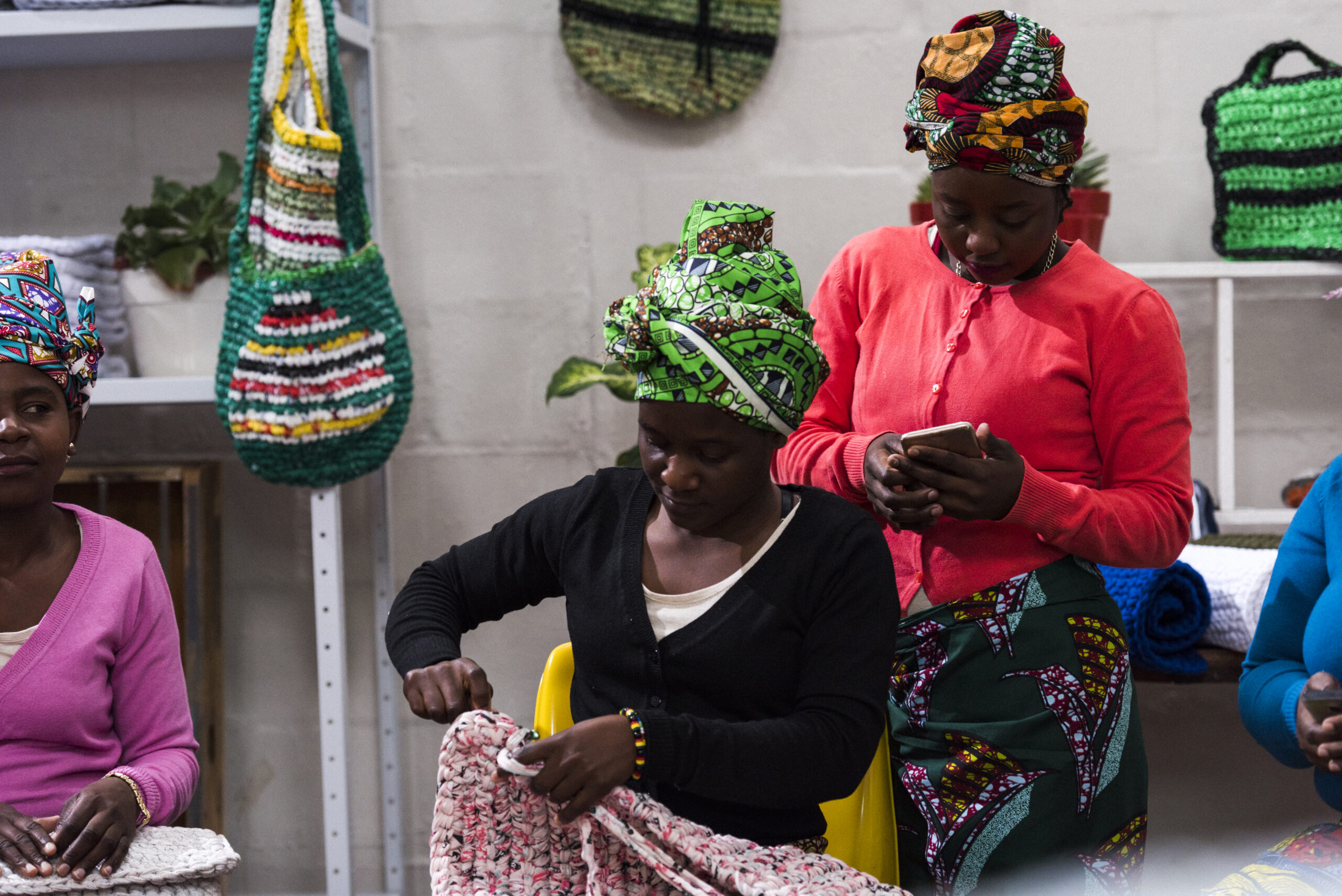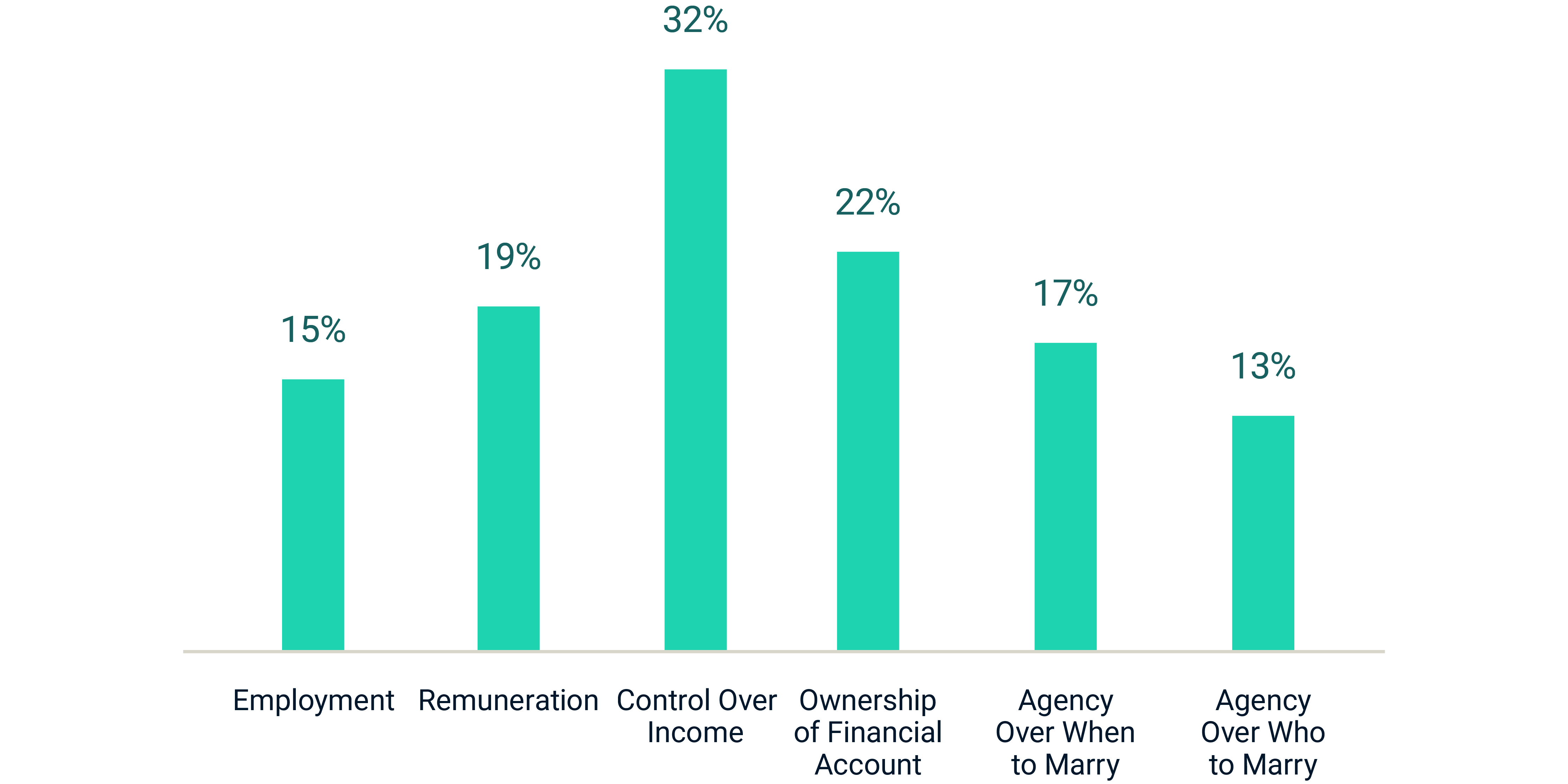What Powers Fraym’s Gender Data Engine


Invest Now: Transform Community Gender Norms to Drive Economic and Personal Empowerment for Young Women
Using the Gender Norms Data Engine (GNDE), our research demonstrates a cascading link between community support for gender equality and improved economic and personal outcomes for adolescent girls and young women (AGYW) aged 15–24 in Nigeria and Kenya – where improving the community environment can spark positive change for young women.
Drawing on large-scale, nationally representative population-based individual and community-level data from the GNDE, our findings suggest that communities embracing more gender-equitable norms are associated with significant progress in young women’s economic and personal lives. In these communities, young women are more likely to work outside the home, receive remuneration, control their income, spend less time on care work, access financial accounts, and have greater personal agency over decisions related to marriage timing and partnerships.
Our analysis further highlights that support from key reference groups can amplify these impacts. For instance, in Nigeria, our analysis predicts that even small, meaningful improvements in community support for gender-equitable norms, particularly among elders and the broader community, could increase employment and remuneration rates by over 15%, control over income by 32%, and financial account ownership by 22%. It could also reduce time spent on care work by approximately 12 minutes per day while increasing the prevalence of AGYW deciding when and whom to marry by over 10%.
Estimated impact of a 10-point increase in community support for gender-equitable norms (G-NORM)1 on select WEE Outcomes among Nigerian AGYW

These findings underscore the need for programs and policies to go beyond addressing immediate economic barriers and invest in actively challenging the norms that shape behaviors and restrict opportunities. Furthermore, targeting young women alone is insufficient; engaging their broader communities is essential to maximize and sustain impact. Evidence from intervention science shows that gender-transformative approaches can successfully shift norms within program timelines. These approaches should be scaled up using mass media alongside traditional methods, such as community dialogue and reflection, which have already demonstrated success. When combined with economic interventions like financial inclusion and job creation programs, these scaled-up gender-transformative efforts can create a multiplier effect that strengthens and amplifies AGYW’s economic independence and personal agency.
The evidence is clear: transforming community norms is a critical strategy to improve outcomes for AGYW. While the link between norms and progress is complex, the data consistently shows that communities embracing gender equality create more opportunities for young women. Transforming these norms is not just a complementary effort—it is essential to accelerating progress toward true gender equality. The projected 131-year timeline to achieve global gender parity demands urgent action. Now is the time to invest in changing the deeply ingrained norms that shape AGYW’s futures.
To learn more about how norms shape AGYW economic outcomes, please refer to the full report below:
If you have any questions or would like to learn more about this work, please feel free to contact:
Neetu John, PhD (Pronouns: She/Her)
Principal, Gender Research & Programs, Fraym
Email: [email protected]
1 G-NORM scale was developed and Validated by Sedlander E et al (2022) in India, and subsequently adapted to Nepal and Uganda to measure gender norms. Fraym validated the scale in Nigeria and Kenya.